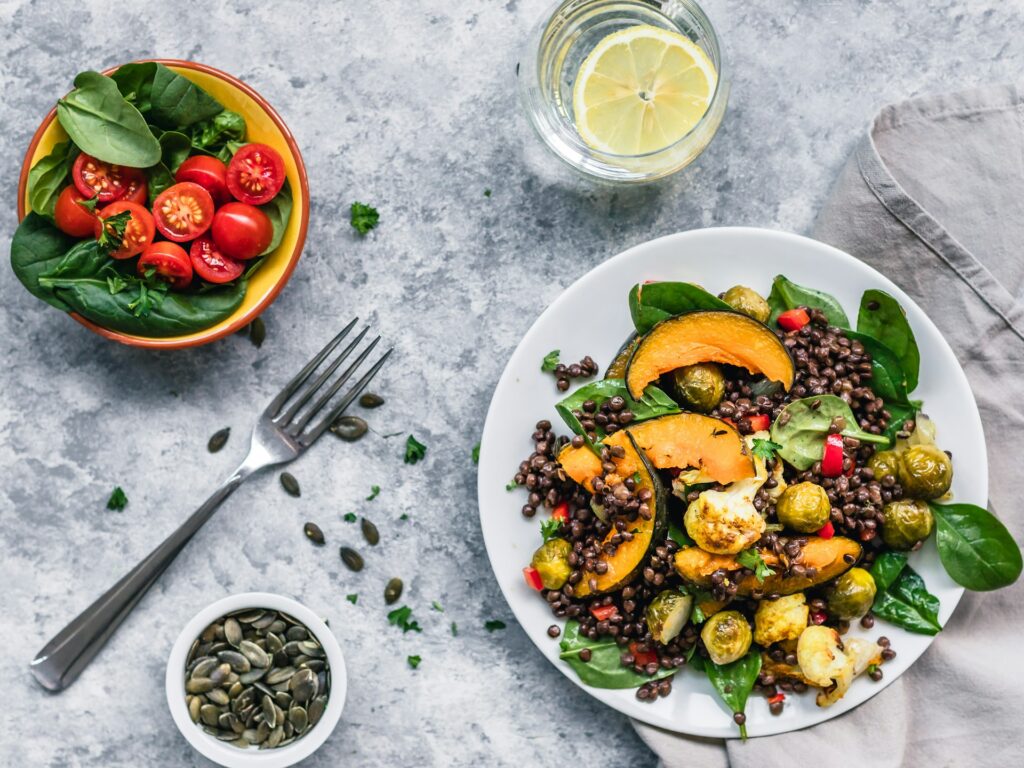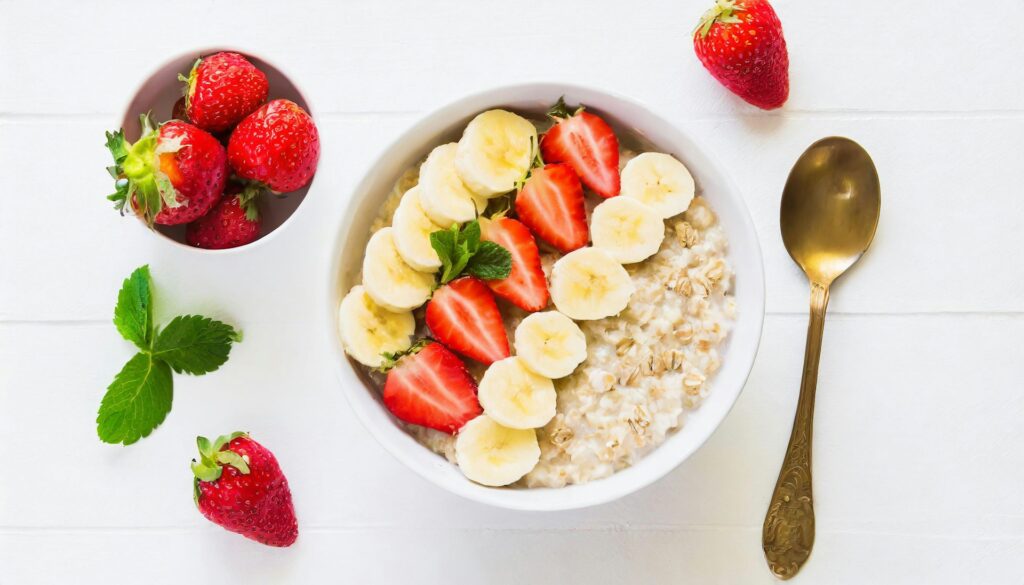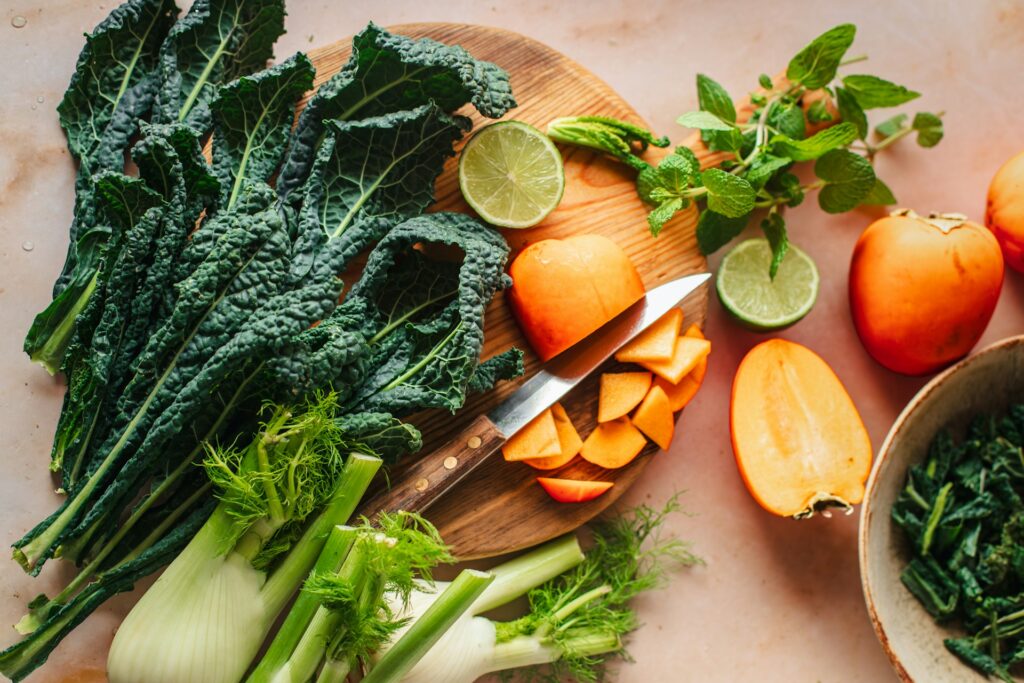From transforming your health to benefiting the environment, more people are exploring this sustainable and nutritious lifestyle. Plant-based diets are transforming the way we think about food. While switching to a plant-based diet may seem overwhelming, it doesn’t have to be.
Whether you choose to eliminate animal products completely or take a gradual approach, transitioning to plant-based eating is about finding what works best for you. Remember, healthy eating is not one-size-fits-all, the key is setting realistic and sustainable nutrition goals that suit your lifestyle.
Health Benefits
Plant-based diets are more than just a trend, it’s a lifestyle that offers numerous health benefits. By focusing on whole, nutrient-dense foods like fruits, vegetables, legumes, and grains, this approach can help reduce the risk of chronic diseases such as heart disease, diabetes, and certain cancers. Additionally, plant-based diets are rich in fiber, vitamins, and antioxidants, promoting better digestion, sustained energy, and overall well-being.
Improve Brain Health with The Power of Plants

Plant-based foods such as avocados, beets, dark chocolate, olive oil, and coffee are rich in nutrients that support brain health. Many of these foods contain antioxidants that cross the blood-brain barrier, protecting brain cells from free radicals and reducing the risk of cognitive decline. The nutrition choices you make today can significantly impact your brain health later in life.
Easily Meet Fiber Needs

Fiber is the cornerstone of a plant-based diet. A high-fiber diet helps reduce the risk of heart disease, improves cholesterol levels, and aids digestion. By increasing your intake of whole plant-based foods, you’ll boost your fiber intake and support overall health.
Improve Gut Health

Plants are a natural source of prebiotics—non-digestible fibers that feed probiotics and help maintain a balanced gut microbiome. Foods such as onions, garlic, seaweed, flaxseeds, apples, oats, and bananas offer both prebiotics and probiotics, which work together to improve digestion and boost overall health.
Get Powerful Phytochemicals From Plants

Phytochemicals are natural compounds in plants that stimulate the immune system, reduce inflammation, and help prevent DNA damage. Foods like red peppers, sweet potatoes, kale, and tomatoes are loaded with these powerful nutrients. Research suggests that eating more plant foods can reduce cancer risk by as much as 40%.
Support Heart Health

A whole-food plant-based diet keeps saturated fat intake low, helping to lower cholesterol and reduce the risk of heart disease—the leading cause of death among women in the U.S. Studies show plant-based diets can lower cholesterol as effectively as statin medications, without the side effects. This approach also reduces the risk of diabetes, liver disease, and other chronic conditions.
Balancing Nutrients
Balancing nutrients is essential for maintaining optimal health, especially on a plant-based diet. It’s important to ensure you’re getting a variety of key nutrients, such as protein, vitamins, and minerals, to support bodily functions.
For example, plant-based sources of protein like beans, lentils, tofu, and quinoa can meet your daily needs, while leafy greens, fortified plant milks, and nuts provide calcium and vitamin D. Iron-rich foods like lentils and spinach, when paired with vitamin C sources like citrus, enhance absorption.
By planning meals with a variety of whole foods, you can easily meet your nutrient needs and promote overall well-being.
Protein
Meeting daily protein needs is possible with proper planning. Excellent sources include beans, lentils, soy products (like tofu and tempeh), nuts, seeds, and whole grains.
Vitamin B12
While naturally found in animal products, B12 is available in fortified plant-based foods like cereals, nutritional yeast, and plant-based milks. A supplement may be needed.
Vitamin D
Vitamin D supports calcium absorption, immunity, and inflammation control. You can get it through sunlight and fortified plant-based foods like almond or soy milk.
Calcium
Calcium isn’t just found in dairy. Collard greens, kale, broccoli, tofu, tahini, and almonds are excellent plant-based sources.
Iron
Iron, essential for blood production, is found in leafy greens, lentils, chickpeas, and oatmeal. Pair iron-rich foods with a source of vitamin C, like lemon juice, to boost absorption.
Practical Tips For Success
Treat Animal Protein as a Side Dish
Shift the focus of your meals to plants, using animal products sparingly, if at all.
Stock Your Kitchen with Plant Foods
Keep plant-based staples like beans, grains, and frozen vegetables on hand for quick, easy meals.
Veganize Your Favorite Dishes
Transform your go-to recipes by swapping meat for tofu, beans, or lentils. Use nutritional yeast in place of cheese.
Meal Plan and Prep
Prepare plant-based meals ahead of time. Roast vegetables, make a batch of hummus, or prep greens to make meals easier throughout the week.
Start with One Plant-Based Meal Per Day
Ease into the transition by making one meal each day plant-based. Try a smoothie for breakfast, a vegetable wrap for lunch, or bean chili for dinner.
Layer Plants into Existing Dishes
Add vegetables to soups, sauces, or sandwiches. Wilted greens, blended veggies, or extra toppings can easily boost your plant intake.
Need Personalized Guidance?
If you’re unsure where to start or feel overwhelmed by the options, schedule a consultation to get personalized guidance tailored to your health needs and goals. Visit Core Nutrition Health & Wellness to view our services and try some of our favorite plant-based recipes to get started with plant-based eating today.

